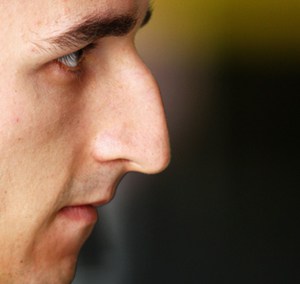

It is a giant leap for the celebrated racer who partially severed his hand in a freak rallying accident during the preseason.
It IS certain that the sport hasn’t lacked any of the excitement and intensity of seasons gone by. The DRS system has been a main benefactor in that, as well as the new Pirelli tyres and inspired dominance of Red Bull’s Sebastian Vettel.
Yet the world of Formula 1 has sorely missed Robert Kubica, a driver who has so much more to give and so much more to earn.
Let’s have a look at the five main reasons the sport will be glad to have him back.

let us remark on one prospect first of all: Nick Heidfeld. Now this may be a lenient view on the German substitute but I believe that he has done a praiseworthy job as a stand-in.
For someone who was drafted in after a year out of a first team drive he has produced some solid results.
It seems that the fans have thrust too much expectation on a driver continuing the role of Kubica as the team’s No. 1. But what you have to remember is that at their time together at BMW it was Kubica who began to steal the advantage, leaving Heidfeld dead and buried.
However, Renault, it has to be said, have definitely missed their No. 1.
Ferrari, Red Bull and McLaren have formed a stranglehold on the top three, with Renault battling Mercedes for the best of the rest position.
Robert Kubica possessed that rare quality that in recent years has been seen in the likes of Michael Schumacher at Bennetton and Fernando Alonso at Ferrari; he has the ability to outperform an average piece of machinery and make it into something beautiful.
The end result is that a team who you deemed unlikely to succeed in the same manner as in days gone by can actually get much closer to replicating their former glories.
A driver who produces this for the team edges the team forward. Their staff feel the motivation to continue the progression their No. 1 driver has gifted them. A snowball effect enhances the driver and the team’s ability to consequently subvert expectation.
Without an obvious leader this season, Renault has been unable to do so.
Petrov and Heidfeld, sadly, have shown signs of brilliance but have not taken to the car in the same almost flawless and overwhelming direction which Kubica had.
As such, the team and their fanbase await Kubica’s return with the same intensity and passion as a child waiting for Santa to deliver.
2. We Miss the Spanner in the Works
At times this season, the likes of Rosberg in Mercedes have penetrated the top three teams. Sometimes this has not been too difficult due to Massa’s general lack of pace at Ferrari and Webber’s loss of consistency at Red Bull.
Yet in most of these situations a good qualifying session from an underdog is undone as the race progresses and such drivers have just been sliding backwards.
What Kubica was capable of was sticking his car not only higher in the grid than expected, but he could well and truly keep it there. He was the epitome of a stubborn Grand Prix driver and as spectators we loved it.
From an opportunistic point of view it worked wonders in the Canadian Grand Prix in 2008. His one and only triumph came after Lewis Hamiton took out fellow race contender Kimi Raikkonen in the pits.
With consistently battling for podiums all season Kubica was left to pick up the win, much to the delight of the neutral supporter and his Renault team.
The important aspect of Kubica was that he often threw the top three teams’ tactics into chaos. Whilst Red Bull would look at what Mclaren and Ferrari were doing they also had to ensure that they were mindful of Kubica.
He could just be the spanner in the works which could prove costly for title or race-winning ambitions.
Kubica scored eleven podiums in three years in cars deemed unable to win Grand Prix races. Whilst this view may have had a major amount of validity to it, the Pole obviously thought otherwise.
A return to the sport for can therefore only mean that our front end action becomes greatly enhanced once more. Only this time the bar may be raised higher.
3. The Unexpected Title Contender
When Kubica triumphed in Canada in 2008, it forced you to throw your expectations to the wayside. BMW were not title contenders, yet now their driver who had scored six consecutive top-four finishes was leading the title race.
It was magical and widely adored madness.
Many were in disbelief but whilst the likes of Hamilton and Raikkonen were running into each other and facing additional woes it was Robert Kubica who sneaked into an unexpected advantage.
If his BMW car hadn’t begun to rapidly decline later in the season this continuation of consistent finishes coupled with the inability of the expected title contenders to perform regularly could have worked wonders.
Could we have had a title winner with only one albeit lucky race win under his belt? It would have gone down a treat and in the history books as a remarkable feat of tenacity, determination and more so a glowing representation of individual class and quality.
Arguably it is what the Pole deserves. It is also therefore a reason to question his loyalty to Renault for two seasons where the car was obviously a hindrance to his campaign.
Who knows what could have been had Kubica raced this season. With Vettel’s dominance he could have edged into a celebrated second position at best and closer to a seat at one of the top three teams.
4. The Driver Who Used a Crash to Motivate
Sometimes fate can bestow profound greatness. When many witnessed the violent and devastating crash as Kubica’s BMW was ripped apart upon collision with a concrete wall, it seemed impossible that he would escape unscathed.
Yet it shows the dramatic improvements in the safety of Formula 1 since the black weekend of ’94 and Kubica was able to get on with the show.
His win at the same track twelve months later was the perfect anecdote. After the incident itself he only missed the US Grand Prix before returning to action in France.
Yet we witnessed a revitalised Kubica who would go on to score points in the six races before his heroic opening to the following campaign.
Eventually it was the crash that defined his turnaround. He went from a slightly above average midfield nobody to being a somebody and maybe his rallying crash can have much the same effect.
5. The Polish Influence
If ever there was a perfect ambassador for Poland it has to be Robert Kubica. Becoming the first and still only Polish driver within the sport, he has done his country the world of good.
In Great Britain, where Polish culture has evidently caused concern amongst nationalists, it is the likes of Kubica who represent a positive emblem of the European neighbours.
One trait the sport and Bernie Ecclestone have always sought to provide for is the abundance of variety. New tracks in unknown entities such as India and Abu Dhabi have proved enticing and have been welcomed with open arms.
Similarly, the various nations without regular drives in the sport garner positive attention.
Many have expressed their view that Kubica not only deserved to be the first Polish winner in Formula 1, but also that he could gladly be the first Polish World Champion.
Antony Herbert – Bleacher Report
Photo: Paul Gilhan/Getty Images
